Russia slams Poland's use of tear gas on migrants as 'unacceptable'
Russia has denounced Poland's use of tear gas and water cannon against migrants trying to cross into the country from Belarus, describing the move as "absolutely unacceptable."
For weeks, thousands of migrants have been stranded at Belarus' border with Poland as the latter has closed the frontier and prevented them from crossing over. The migrants, mostly from the Middle East, Afghanistan, and Africa, are trying to enter the European Union (EU).
On Tuesday, Polish forces fired tear gas and water cannon at the crowds of migrants to turn them back from the demarcation line.
Russian Foreign Minister Sergei Lavrov said, "The behavior of the Polish side is absolutely unacceptable." He told a press conference in Moscow that "tear gas and a water cannon and shots [were] fired above the heads of migrants toward the direction of Belarus."
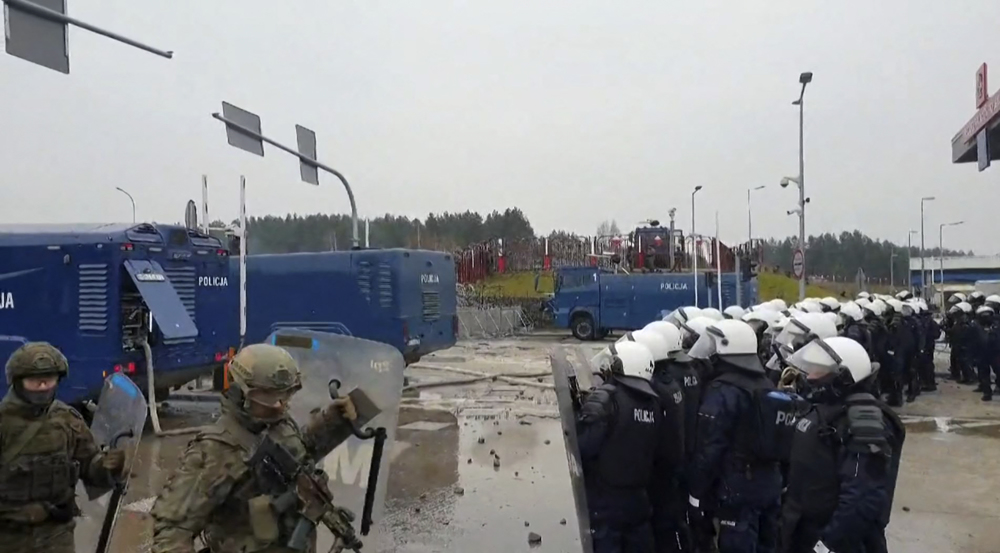
Footage from the scene showed a vehicle on the Polish side of the border shooting jets of water into the air and what appeared to be clouds of smoke and light rising from projectiles fired by border troops.
The move provoked migrants to approach the demarcation line of the border, and some of them threw stones at the Polish forces.
Poland's Defense Ministry accused the migrants of attacking a border fence at Kuznica.
"The migrants attacked our soldiers and officers with stones and are trying to destroy the fence and get to Poland. Our services used tear gas to quell the migrants' aggression," the ministry said on Tuesday, tweeting a video showing apparent clashes at the border.
Polish police said a police officer had been seriously injured in the clashes.
Lukashenko says wants to avoid 'confrontation'
Meanwhile, Belarus' President Alexander Lukashenko said he wanted to avoid a "confrontation" over the border issue after EU foreign ministers agreed that existing sanctions targeting Belarus would be expanded.
"We cannot let this so-called problem lead to heated confrontation," he told a government meeting. "The main thing now is to protect our country and our people, and not to allow clashes."
The president also discussed the crisis with German Chancellor Angela Merkel in a phone call on Monday. Lukashenko said he and the chancellor had agreed the standoff should be defused. "We were of the united opinion that nobody needs escalation — not the EU, or Belarus," he added.
This was the first time Lukashenko was speaking to a Western leader since relations between Belarus and the EU strained last year.
Merkel's office also said the two leaders had discussed getting humanitarian aid to the migrants, among whom are many young children.
Poland and other EU member states accuse Belarus of coordinating an unprecedented wave of asylum seekers at the border in retaliation for existing sanctions imposed by the bloc on the country.
Belarus, however, denies the allegations, accusing the EU of turning its back on the migrants who are now stranded in increasingly dire conditions and freezing temperatures.
"We are not gathering all the refugees in the world and bringing them to Belarus, as Poland told the EU," Lukashenko said, adding that his government had deported around 5,000 migrants to their home countries.
Meanwhile, some countries have started the repatriation of their nationals from the region.
The Iraqi Embassy in Moscow said it would fly out around 200 people on Thursday. "Around 200 people have got in touch with us. An evacuation flight will be organized on Thursday," a representative of the Iraqi embassy said.
Baghdad has said it would organize repatriations on a "voluntary" basis this week.
Belarus' airline Belavia has also said that Syrians, Iraqis, Yemenis, and Afghans are banned from incoming flights from the United Arab Emirates at Dubai's request.
Turkish Airlines has banned Iraqis, Syrians, and Yemenis from flying to Belarus via Turkey as well.
Aid groups say at least 11 migrants have died on both sides of the Belarus-Poland border since the influx started in the summer.
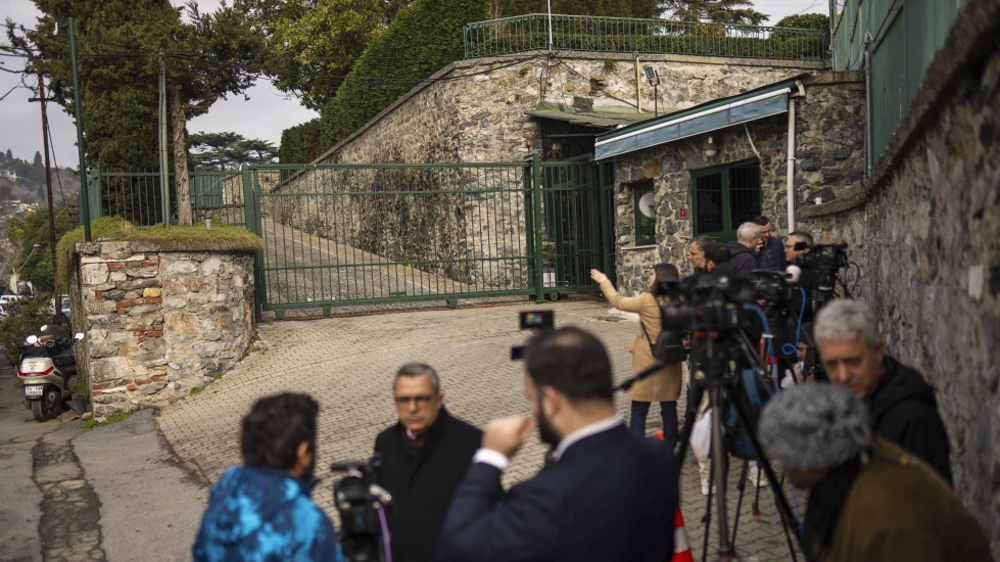
Russia, US diplomats to meet in Istanbul to discuss restoration of embassies: Lavrov
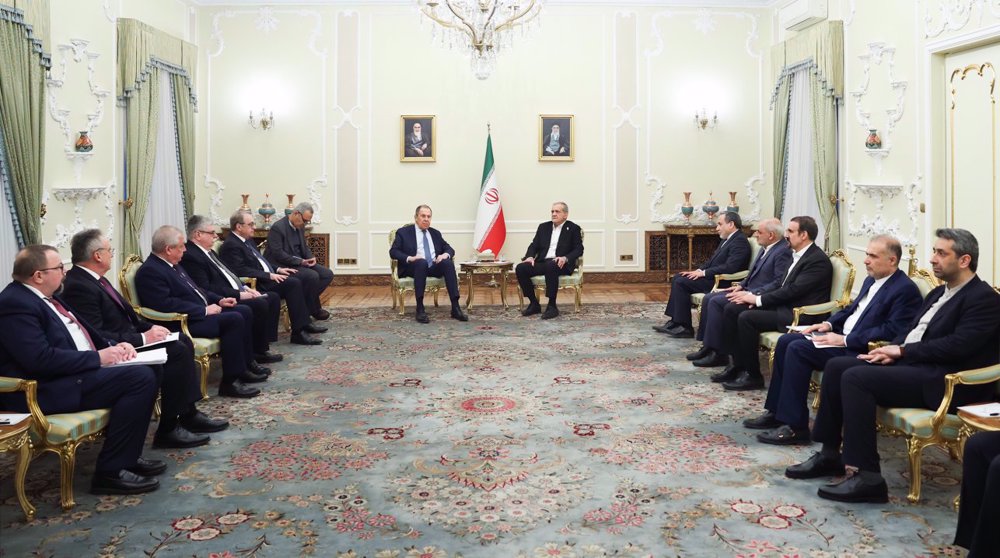
Iran’s president vows to accelerate cooperation with Russia
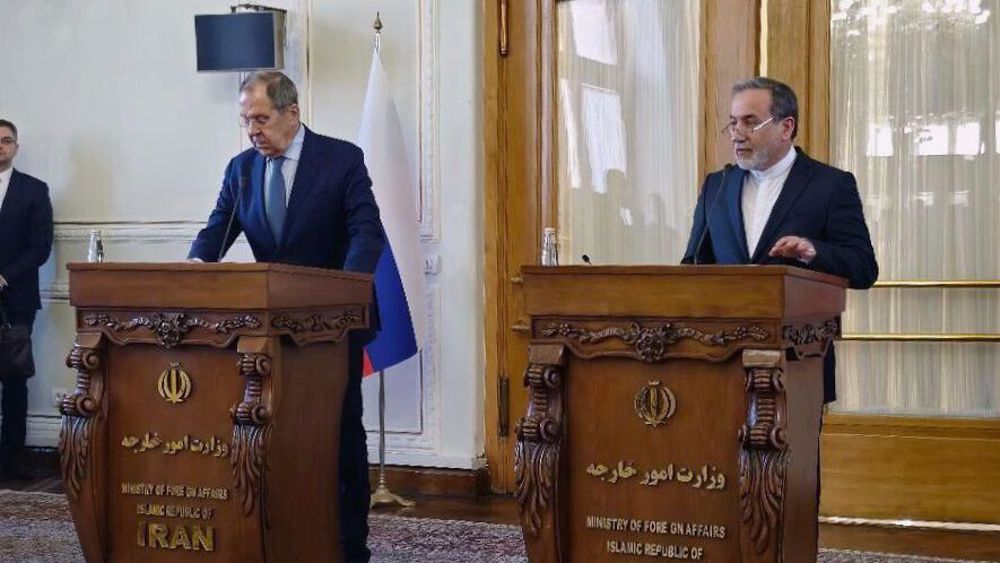
Iran rules out nuclear talks with US amid ‘maximum pressure’ campaign
VIDEO | Press TV's news headlines
Longest held Palestinian prisoner released by Israel
Iran condemns Israel’s military threats
VIDEO | Pakistan, Iran strengthen trade ties with $10 billion target
VIDEO | What conditions faced by Palestinian prisoners?
Israel carried out mass killing of own people under ‘Hannibal Directive’: Military probe
VIDEO | Telecommunications down in Gaza due to Israeli curbs delaying repairs
Egypt: Hamas-Israel negotiations on next phase of ceasefire begin


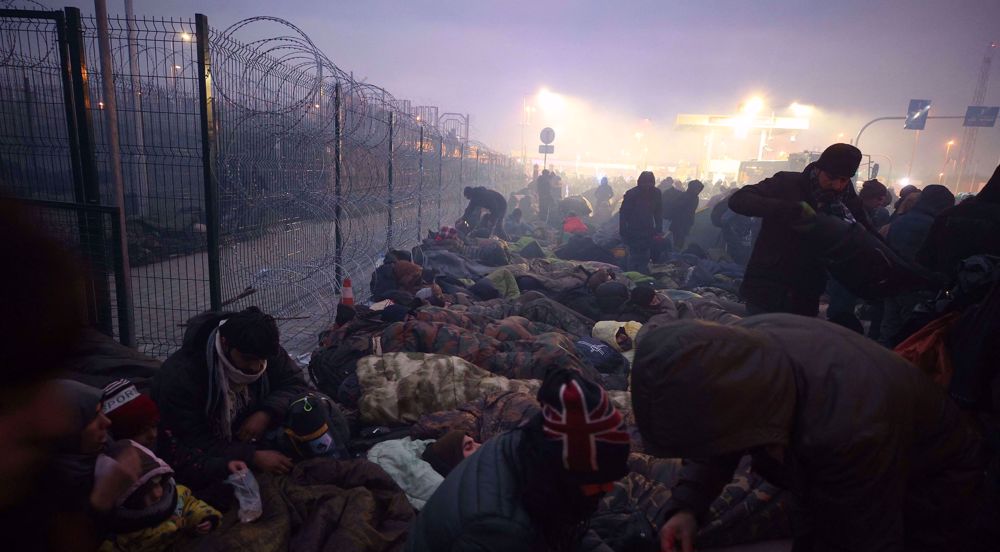
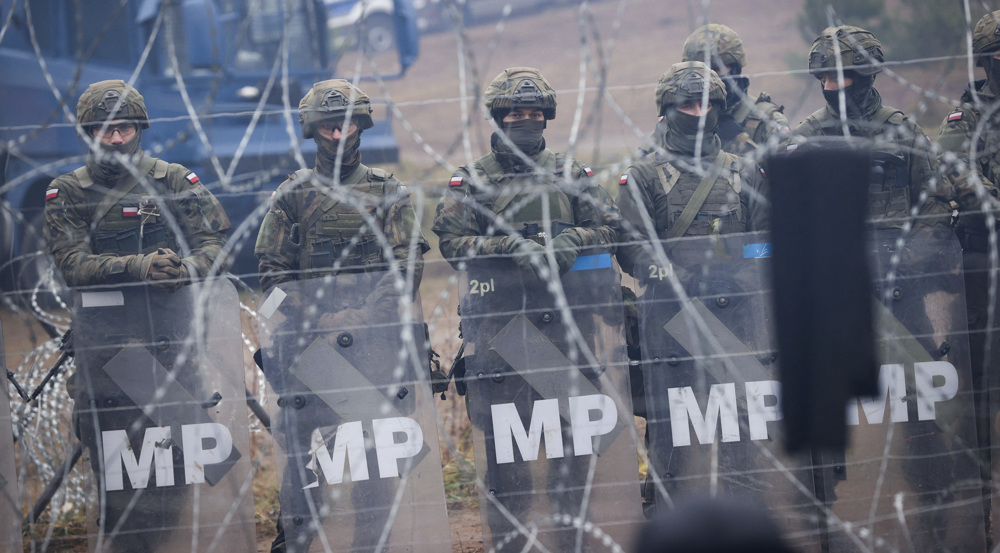



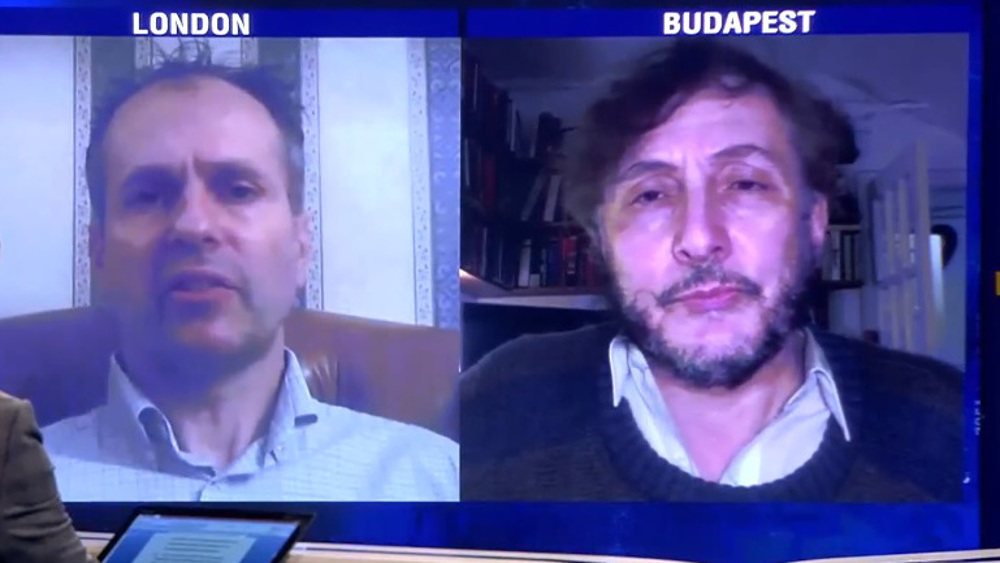
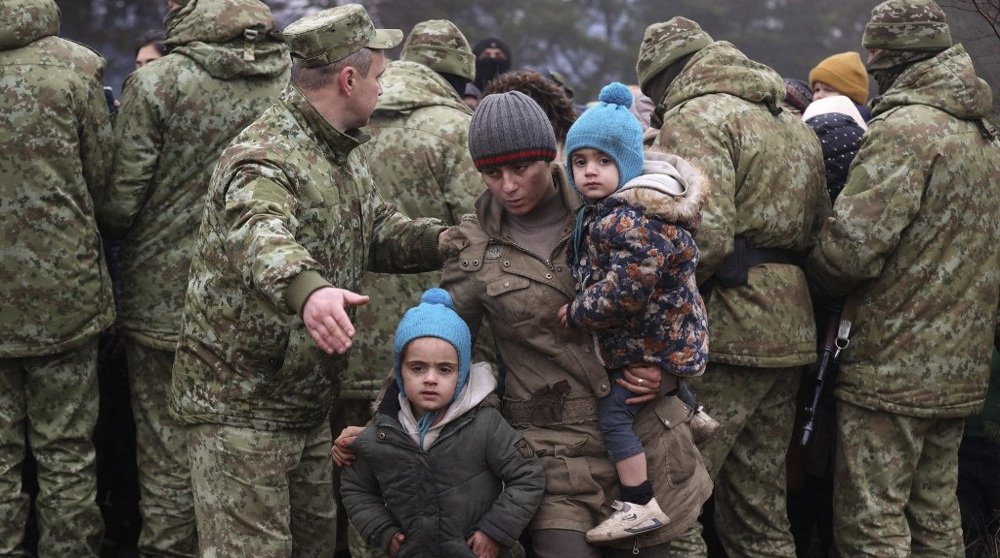

 This makes it easy to access the Press TV website
This makes it easy to access the Press TV website